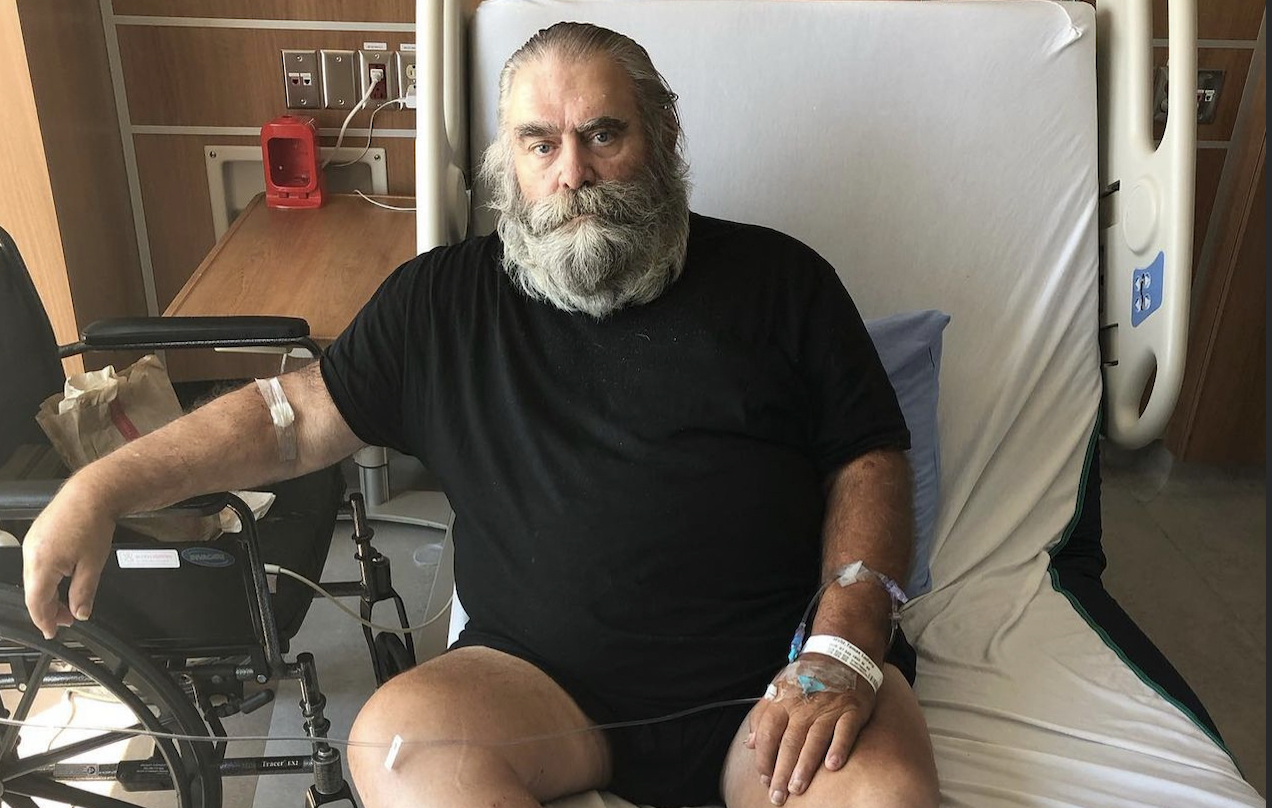
Two months ago, we looked into the story of Thomas Mohr, a construction carpenter of 52 years who is now a 70-year-old homeless amputee living out of his truck in an Oakville parking lot for over a year.
Mohr now finds himself in a bad situation gone worse, as his living conditions in his old and worn pickup truck have put his second leg at risk of being amputated due to a deep hollow cavity infection.
Mohr has been trapped in an ongoing battle with the Ontario healthcare system and fears that his situation speaks to a broader issue that others could find themselves in very easily. As a result, his original funding goal has been bumped up by $1,000,000.
"Halfway through wound care last year on my left foot, I had to change locations. This new facility was not following doctor's orders on how to manage the wound properly, resulting in even more pain and suffering," Mohr said.
"This facility eventually refused to let me in their building for care as my mobility was affected by my foot. They did not offer to assist me in getting in nor offer a wheelchair. Instead, I had wound care sitting on the back of my 26-year-old, unsanitary pickup in an unpaved, dusty, gravel parking lot. This is our healthcare system in a first-world country?"
Thomas Mohr is now under the care and supervision of the Oakville Trafalgar Memorial Hospital staff, who have tended to the infection on his right foot. However, he's well aware that he could end up in a far worse situation without proper accommodation. He is expected to be in the hospital for two months as a means to recover, but his living circumstances after the fact remain unforeseen.
When I visited Thomas in the hospital, he was thrilled to have a visitor. He admitted that he deeply misses all the kind residents in Oakville who would stop by his truck to chat with him in the RIO plaza. Fortunately, the goodwill in Oakville's community is not absent from Thomas's current situation.
Support House is a non-profit organization funded by the Halton Region, which was made aware of Mr. Mohr's situation. Support House's main initiatives are providing mental health and wellness services to homeless individuals and families in Halton Region, ultimately ensuring that nobody in the area is left to fend for themselves in difficult circumstances.
When I spoke to Thomas, he had immensely high regard for their efforts to help him - and it seemed that his faith in the support services sector was somewhat beginning to be restored. Specifically, he spoke of two outreach workers, Katie and Jenn, who've been working hard to find accommodations for Thomas.
"When we found him sleeping sitting up in the driver's seat of his pickup truck, I told Katie right away that getting this man sheltered somewhere would be my priority," Jen said.
The Halton Region has allocated $1.10M in funding for Support Houses Housing First Response Team; the intent is to move individuals from encampments to housing and supports.
In addition, the region invested another $6M for Support House to build a 12-unit apartment for those needing accommodation, which is set to take in guests by 2025.
Both Katie and Jenn are currently working with a social worker at the hospital to create a discharge plan for Thomas to be implemented upon his release.
Even with all the amazing efforts from Support House to tend to Mr. Mohr's situation, he's still certain that the GoFundMe is his only chance at experiencing a normal life again.
"Raising this Money via GoFundMe is extremely imperative for my successful outcome, security & healing, as any help that is being offered is only temporary and not a permanent solution. This GoFundMe Is the only permanent solution; otherwise, I am right back to square one, homeless and confined to living in my vehicle," stated Mohr.
Thomas' GoFundMe Page has been updated to detail the whole journey he has endured up until now.
Speaking to President & CEO of United Way Halton & Hamilton, Brad Park he had this to say:
"The current situation regarding homelessness in Oakville, Halton, and Hamilton is a pressing one, with many individuals and families experiencing housing instability. To tackle this issue, it is essential to recognize that it cannot be solved by any one organization alone. United Way is actively collaborating with various partners, including local government agencies, non-profits, and community stakeholders, to create a coordinated response. Our goal is to connect individuals to the appropriate resources and support networks, such as shelters, mental health services, and employment assistance, to help them rebuild their lives."
"However, addressing homelessness requires a multi-pronged approach. Beyond immediate support, we believe in the importance of long-term solutions, including affordable housing initiatives, mental health services, and employment opportunities. It's crucial for our communities to come together and work collectively to find sustainable solutions to homelessness."